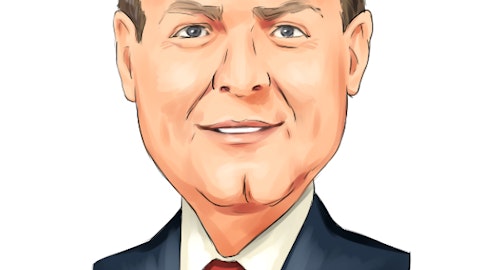Matteo Anversa: So obviously, Ryan, we are monitoring the situation between the UAW and the OEM very closely. There was no impact in the third quarter, but the impact will be in the fourth. And as I said in my remarks, we are assuming that the plans that were impacted up to yesterday will continue to be idled through the end of November. So in terms of numbers, this equates to about $15 million to $20 million revenue impact for the fourth quarter. And Ford is about 25%, 30% of it. So that gives you kind of a gauge in case things change in the coming weeks. Maybe last comment, I would make, this incremental margin on this $15 million to $20 million revenue is about 40%, which is a little higher than what we normally have, just because there are, embedded in the estimate, additional inefficiencies that we are expecting to incur due to the strike.
Then obviously, Ryan, if things were to continue, obviously, and if the strike gets prolonged, then we have a contingency plan in place, which we will enact, which includes obviously cost control at the OPEC side, tighter control and capital expenditures. But for sure, we are planning to – foremost, to protect our people and our customers. We have delivered good, strong free cash flow in the year, so we can afford to build a little bit of inventory to make sure that we are ready for the ramp up once this issue is resolved.
Mike Zabran: And then as just my second question, it seems like you guys have had an accelerated traction with local Chinese OEMs. Is this primarily customers demanding more thermal comfort solutions and more of your products, or is this primarily you guys winning conquest business away from competitors?
Phil Eyler: It’s both. The first one, for sure, we’re seeing a rising demand for thermal and pneumatic features in China, period [ph]. So the consumer is growing more accustomed to those solutions and expecting it from the OEM. So that’s great. Great tailwinds just on the features in general. On the other side, we have very tactically focused on specific OEMs. In the past, most of our business, well, still is, and certainly traditionally has been with global OEMs who have formed joint ventures in China, and we’ve kind of transitioned our business with them into the market. In the last couple years, we’ve prioritized several domestic Chinese OEMs and are starting to make very good progress there. We have a full support team in China, very large with three manufacturing plants, ready and able to aggressively go after those customers.
And we’re excited to announce that, especially with rising EV players, companies like Li Auto, BYD, Xpeng, and certainly Great Wall, that we’ve picked up a lot of business of late. So it’s a priority for us, and we’re excited about what the team is doing there.
Mike Zabran: Great, thanks guys, good luck.
Phil Eyler: Thanks, Ryan.
Matteo Anversa: Thanks, Ryan.
Operator: Thank you. [Operator Instructions] As there are no further questions, the conference of Gentherm has now concluded. Thank you for your participation. You may now disconnect your lines.
Follow Gentherm Inc (NASDAQ:THRM)
Follow Gentherm Inc (NASDAQ:THRM)
Receive real-time insider trading and news alerts




